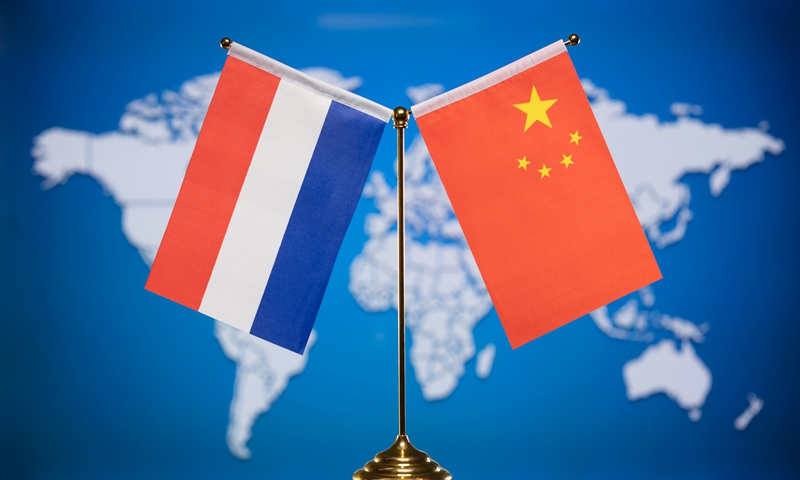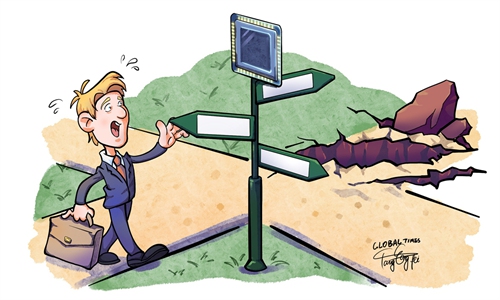Exclusive: Netherlands’ accusations of Chinese companies spying untrue, unfair: Chinese Embassy

China and the Netherlands File photo: VCG
Accusations of Chinese companies spying are not based on evidence, untrue and unfair, the Chinese Embassy in the Netherlands said in response to a Dutch intelligence service assessment that hyped "China threats" such as "commercial espionage and covert investments."
"Chinese companies observe Dutch laws and regulations and contribute to the Dutch society. The accusations of Chinese companies spying are not based on evidence, not true and not fair," the Chinese Embassy in the Netherlands told the Global Times in an exclusive statement on Wednesday.
"Confronted with so many challenges, our world today needs cooperation and unity more than ever, not the cold war mentality," the embassy said, noting that China is committed to openness, and it will work together with the Netherlands to build a welcoming and open business climate, which is vital to the prosperity of the two countries and the world.
According to a Reuters report, the Netherlands' intelligence service, known as AIVD, said in its 2022 annual report that China had used "legitimate investments, corporate takeovers and academic cooperation, as well as illegal (digital) espionage, insiders," among other methods in the European country, and claimed that Dutch companies, knowledge institutions and scientists are regularly "victims" of these moves.
The agency nevertheless noted in the report that at the same time as "China forms the greatest threat to Dutch economic security," Chinese companies and knowledge institutions sometimes are valued partners for Dutch institutions.
The report comes at a time when the US is coercing other countries, including the Netherlands, to hobble China's ability to make its own semiconductors through hyping up the so-called "China threat" narrative.
In March, the Dutch trade minister was quoted in media reports as saying that the Netherlands will impose new restrictions on exports of semiconductor technology, a move broadly in line with US restrictions imposed in October 2022. This could deal a heavy blow to its semiconductor sector and harm sound China-Netherlands trade and economic relations.
In response to the new chip export restrictions, the Chinese Foreign Ministry said in March that "China firmly opposes a move by the Netherlands that interferes with and constrains normal trade between Chinese and Dutch firms through administrative means, and China has lodged representations with the Dutch side."
"From the perspective of maintaining its own interests, we hope the Dutch side will not follow a certain country in abusing export controls, and instead work with China in jointly maintaining the stability of global industry supply chains, and the free and open international trade order, for the common interests of both countries and their companies," Chinese Foreign Ministry spokesperson Mao Ning told a regular press conference.
Industry observers are warning the European nation to have sober considerations for its own interests before blindly following and joining the US in any further steps to contain China.
China-Netherlands trade reached $130.25 billion in 2022, up 12 percent year-on-year, according to data from China's General Administration of Customs.
Moreover, China is the third-largest market of Dutch semiconductor equipment maker ASML. According to Reuters, the company generates about 15 percent of its sales in China, an important growth market even after it was restricted from selling its most advanced machines there under US pressure in 2019.


